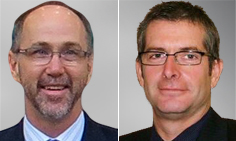IN 1624 John Donne wrote: “No man [or woman] is an island” and four centuries later the message holds true.
If you were facing surgery, would you be assured if you knew your surgeon was excellent? Or would you be more assured to know the whole surgical team was seeking excellence?
Just as health professionals are taught to take a holistic view of patients, including their family and social circumstances, there is enormous value to be gained if clinicians embrace a holistic view of their own roles, and contributions to the teams and organisations in which they work.
Recent research by our team has shown that, when health care organisations have a mindset for excellence, they are able to use participation in accreditation programs to reflect on and obtain feedback about performance. They can then use this information to maintain or improve management of staff and delivery of care.
The evidence is well established that the ability to deliver high-quality, safe care depends not only on an individual’s skills and expertise, but also on their capacity for intra- and interprofessional collaboration, and their engagement in the organisation and functions of the institution where they work.
Some doctors display these characteristics distinctively. Their mindset is to be part of an engaged, participatory team. Their contribution is significant and important, and they seek to bring the best out of themselves and their colleagues, and to encourage a collective pursuit of excellence.
Most of us have worked with people like this: they have a contagious enthusiasm that motivates and inspires others around them.
Is this a self-reinforcing cycle? We think so.
Such pursuit of excellence encourages achievement and motivates the desire for continued excellence across all facets of an organisation. As any fisherman knows, a rising tide lifts all boats.
This can be challenging for clinicians. Having a holistic view and engaging in activities associated with organising care means, for many, stepping into territory beyond their comfort zones — from their field of clinical expertise into areas for which they have no training.
How do some medical practitioners achieve this so successfully?
They combine a holistic mindset for excellence with distributed leadership.
These doctors recognise that high-quality human resource management will contribute to high-quality, safe care. They know when to step back and let others take the lead, and indeed encourage them to do so. They acknowledge their limitations, they seek feedback and are accountable for their mistakes.
In short, they walk the talk.
What is gained from this? At a personal level, doctors will have more freedom and the opportunity to be more relaxed at work. At team level there is potential for improved professional relationships and the better delivery of care. At organisational level, there is more engagement and effective utilisation of people’s skills and abilities.
Really, we cannot see any downside.
We know that high-quality, safe care occurs through the combined efforts and contributions of different professionals in different places at different times. Health care organisations with a mindset of excellence seek to integrate and coordinate the human and technological resources to achieve this end.
If your organisation has not embraced a mindset of excellence, maybe it’s time you did something to get it started.
Associate Professor David Greenfield is a health services organisational researcher at the University of NSW. His research interests include the regulation of organisations and clinical practice. Associate Professor Keith Townsend is a researcher at the Griffith Business School at Griffith University, Queensland. His research interests include employee involvement and participation in decision making, and human resource management.

 more_vert
more_vert
The buzzword and generalisation count in this article is mindblowing.
A very worthy goal to strive for no doubt. Now convince the administration to do the same! At a time when the driving motivation behind most, (if not all) administrative decisions is financial, (ie cost cutting), time and time again I see excellent multi-disciplinary teams being stripped of personnel and resources, with a constant churn of staff. It’s very difficult to build and maintain a committed team when we’re constantly battered by decisions made purely driven by financial imperatives.
As an example, I work as a sleep physician. At my institution, (a centre of excellence in sleep medicine); the dietetics department no longer accepts referrals for dietary advice for weight loss, despite obesity itself contributing to many conditions including the Obstructive Sleep Apnoea that we see so commonly. They will only accept referrals once patients have already developed Type 2 Diabetes. The decision not to see patients before that point was not taken in consultation with any of the clinicans involved, but made on financial grounds. So much for prevention…..